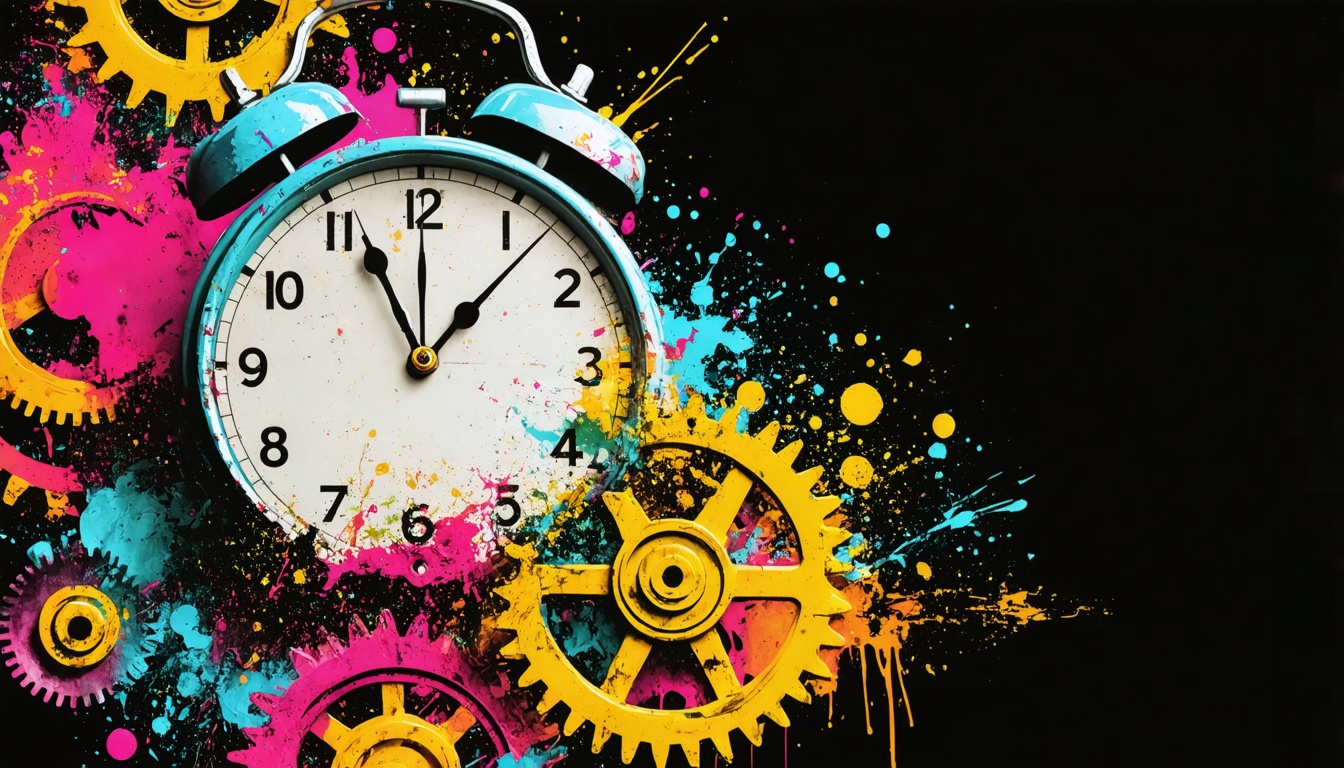Discover how AI automates accumulating data from emails for construction managers, improving efficiency and decision-making.
Are you drowning in a sea of scattered project data, fragmented communications, and siloed information systems that make construction management a nightmare? Imagine if AI agents could accumulate information from emails and other communication channels for construction project managers, integrating all that data into one manageable system.
In this guide, we’ll discover how AI agents accumulate information from emails and other communication channels, integrating your fragmented systems with Datagrid's data connectors. This allows AI agents to automate proposal creation and unlock insights hidden in your project data. Whether you're new to construction management or looking to sharpen your skills, you'll find actionable insights to boost your project management capabilities.
How AI Agents Accumulate Information from Emails and Other Communication Channels
AI agents perform tasks that typically require human intelligence, making them valuable assets in construction project management. They use machine learning, computer vision, and natural language processing to collect, analyze, and act upon vast amounts of project data.
Data Accumulation Capabilities
AI agents excel at gathering information from multiple sources—emails, documentation, sensor readings, or communication channels. Systems like Datagrid let project managers assign complex research tasks to AI agents that connect to over 100+ platforms, access online information, and organize data into structured formats. By accumulating information from emails and other communication channels, AI agents create a comprehensive data foundation for better decision-making.
Task Optimization
The real power of AI agents lies in optimizing critical construction tasks:
- Project Planning: AI agents analyze historical project data to create efficient schedules that account for all variables, reducing downtime and task overlaps. These agents process vast amounts of information continuously, updating schedules as conditions change.
- Safety Monitoring: Computer vision technologies watch construction sites in real-time, spotting safety hazards like workers without protective gear or unsafe machinery operation. These systems alert site managers immediately, helping prevent accidents.
- Design Optimization: Through generative design, AI agents can take specific design goals and constraints (materials, budget, building codes) and create optimized design options that are both efficient and cost-effective.
- Contract Analysis: AI agents can automate contract comparison, highlighting differences between versions and assessing risks, helping project managers make informed decisions quickly.
Predictive Analysis for Project Management
AI agents shine with their predictive capabilities. By analyzing vast datasets from past and current projects, these agents can:
- Predict potential delays before they happen, allowing for proactive intervention
- Identify risks that human managers might miss
- Recommend scheduling efficiencies based on resource availability and task dependencies
- Forecast bottlenecks in the construction process
According to a McKinsey study, AI could boost construction productivity by up to 20% by enabling better project planning and resource management. While AI agents process and analyze data remarkably well, they work best paired with human expertise. The project team's contextual knowledge and situational awareness remain essential for guiding AI-driven construction management effectively.
Communication Channels and Data Accumulation
Effective communication goes beyond exchanging messages—it's about strategically gathering, organizing, and using data from various channels to drive better outcomes. When project teams use different communication tools without a central system, critical information fragments. The challenge of managing communications grows with the size of the project team, making systematic data collection even more crucial.
Transforming Communication Data into Project Intelligence
By collecting and analyzing data from emails, instant messaging, and other communication tools, AI agents accumulate information that can turn everyday exchanges into valuable project intelligence. This collected data helps project managers:
- Spot recurring issues before they become major problems
- Track decision-making processes for better accountability
- Monitor project milestone discussions to improve timeline accuracy
- Analyze communication patterns to enhance team collaboration
The key is using technology that centralizes these communications.
Integration for Improved Outcomes
When evaluating how to integrate various communication channels, prioritize systems that offer:
- Direct messaging for real-time team collaboration
- Customized report sharing for stakeholder updates
- Timeline access across all communication platforms
- Cloud-based access for location-independent information retrieval
Construction-specific platforms like Procore's Project Management consolidate communications in ways that enhance data collection throughout the project lifecycle.
By leveraging AI, construction managers can automate meeting notes, ensuring that important discussions are accurately recorded and easily accessible for the team.
The data gathered through these integrated communication channels becomes invaluable for project planning. Using Business Intelligence (BI) tools, project managers can analyze this communication data to identify workflow inefficiencies, refine internal processes, and improve connections between stakeholders and teams.
By treating communication as data to be collected and analyzed, and leveraging AI agents to accumulate information from emails and other communication channels, construction project managers create a foundation for more accurate planning, realistic timelines, and consistently better delivery outcomes.
Mechanisms of Information Gathering
AI agents have changed how construction project managers collect and process information from various communication channels. These intelligent tools use several sophisticated methods to gather, interpret, and organize data from emails, messaging platforms, and other sources.
Automated Notifications and Follow-ups
AI agents streamline information gathering through automated notification systems. These systems can be customized to schedule follow-ups and send alerts about important tasks and communications. This ensures critical information isn't lost in the daily flood of communications.
AI agents can send automated reminders when deadlines approach or when responses to important communications are pending. This proactive approach reduces the manual tracking needed to maintain communication continuity.
Integration with Communication Platforms
AI agents excel at gathering information across multiple channels by connecting directly with tools like Slack and Microsoft Teams. This integration allows them to monitor, extract, and process information without requiring users to switch between different applications.
AI agents can communicate with your team through these platforms, creating a seamless information flow. This integration enables real-time data collection and sharing, keeping project managers informed without constantly checking multiple channels.
Data Enrichment Processes
Beyond simply collecting information, AI agents use sophisticated data enrichment processes to turn raw communications into actionable insights. These processes include:
- Classification of communications: AI can process thousands of chat logs and automatically categorize them as bugs, product support requests, or feature requests.
- Contextual analysis: By understanding the context of communications, AI agents can extract relevant information even when buried within lengthy exchanges.
- Data connection: AI agents can connect to over 100 platforms, gathering and learning from various data sources to enhance their capabilities in managing project information.
- Data extraction from documents: AI agents can perform AI-powered PDF conversion, extracting important data from PDFs and other unstructured documents.
Knowledge Base Creation
A valuable feature of AI agents is creating persistent knowledge bases. Rather than leaving information scattered across emails and messages, these agents can:
- Create datasets that preserve knowledge for long-term management and planning
- Organize information in structured formats for easy retrieval
- Build an institutional memory that maintains project insights even as team members change
This capability is critical in construction environments where information continuity is essential for project success.
Recurring Communication Management
AI agents can schedule and manage recurring communications, saving time while ensuring consistent information flow. They can automate:
- Weekly project status updates to stakeholders
- Regular check-ins with team members or subcontractors
- Periodic data summary reports
By handling these routine communications, AI agents free up project managers to focus on more strategic tasks while maintaining reliable information gathering processes.
Through these sophisticated methods, AI agents accumulate information from emails and other communication channels, transforming information gathering from a time-consuming manual process into a streamlined, automated system that captures, organizes, and delivers critical project information when and where it's needed.
Strategies for AI Adoption and Innovation
Implementing AI technologies in construction requires a strategic approach that balances innovation with practical execution. As you look to integrate these powerful tools into your operations, consider these actionable strategies that can help you navigate the adoption process effectively.
Begin with a Phased Implementation
Rather than attempting a full-scale AI implementation across your entire operation, start with a phased approach. Identify specific pain points in your current processes that could benefit from AI solutions, such as safety monitoring or accumulating information from emails and other communication channels for construction project management.
Construction firms find the most success when they begin with smaller, more manageable AI projects targeting specific challenges. This measured approach allows for a gradual learning curve and helps build internal expertise and confidence in AI technologies.
Develop a Technological Roadmap
Create a clear technological roadmap that outlines how AI adoption will progress within your organization. This roadmap should include:
- Short-term goals (6-12 months)
- Medium-term objectives (1-3 years)
- Long-term vision (3-5 years)
- Required infrastructure investments
- Training and development needs
Your roadmap should acknowledge that construction has traditionally been slower to adopt digital tools, so planning for cultural adaptation is just as important as the technical implementation.
Form Strategic Technology Partnerships
Collaborating with technology partners experienced in AI can help you navigate the complexities of implementation. Consider partnerships with established platforms like Procore.
These partnerships provide access to resources, training, and support that might not be available internally, reducing the barriers to AI adoption.
Invest in Infrastructure and Training
Building the necessary technological infrastructure is crucial for successful AI implementation. Ensure your construction sites have:
- Reliable internet connectivity
- Robust data management systems
- Sufficient computing power
- Mobile device accessibility
Equally important is workforce training. The integration of AI tools requires employees who are both skilled in construction and comfortable with advanced digital technologies. Develop comprehensive training programs that address both technical skills and mindset shifts, helping your team see AI as a tool that enhances their capabilities rather than threatens their jobs.
Simplifying Information Accumulation with Agentic AI
Managing complex construction projects demands juggling documentation, coordination, and oversight. This is where Datagrid's Agentic AI and data connectors create game-changing opportunities for construction professionals like you.
Seamless System Integration Powers Productivity
Datagrid's strength lies in its extensive connectivity—over 100 pre-built connectors that integrate both structured and unstructured data sources. For construction project managers, AI agents accumulate information from emails and other communication channels, integrating your critical management systems like Procore, PlanGrid, or Autodesk BIM 360. This connectivity eliminates information silos.
When your systems connect, RFPs, submittals, change orders, and daily reports flow automatically between platforms. This eliminates the tedious manual data entry that typically slows down project workflows.
The integration capabilities extend beyond construction-specific software to include:
- Project scheduling tools like Microsoft Project and Primavera P6
- Financial systems such as Sage 300 and QuickBooks
- Communication platforms like Slack and Microsoft Teams
AI Agents Handle Time-Consuming Tasks
What makes Datagrid special is how its AI agents automate complex, repetitive tasks that would otherwise consume your valuable time:
- Document Management: AI agents can analyze incoming submittals, RFIs, and change orders, extract critical information, and route them to appropriate team members. This speeds up review cycles, keeping projects moving forward.
- Safety Compliance: By connecting to safety management systems, the platform monitors incident reports, equipment certifications, and worker qualifications automatically, triggering alerts for compliance issues before they become problems.
- Progress Tracking: The platform monitors daily reports, photos, and schedule updates across systems, generating automated progress reports and identifying potential delays before they impact your critical path.
- Communication Routing: AI agents accumulate information from emails and other communication channels, automatically channeling important updates like RFI responses or safety incidents to the right team members, ensuring swift action and collaboration.
These automations drive what industry experts identify as the primary benefits of AI in construction: reduced administrative burden, improved compliance tracking, and more efficient project coordination.
When routine documentation and data analysis is handled automatically, you're free to focus on what truly matters—maintaining client relationships, solving complex problems on-site, and strategically growing your business in a competitive market.
Simplify Construction Email Management with Agentic AI
Ready to revolutionize your construction project management with AI-powered automation? Datagrid is your solution for:
- Seamless integration across all major construction platforms (Procore, PlanGrid, BIM 360)
- AI-driven RFP analysis and bid management
- Automated submittal and change order processing
- Real-time project insights and schedule optimization
See how Datagrid can help you increase process efficiency.
Create a free Datagrid account













